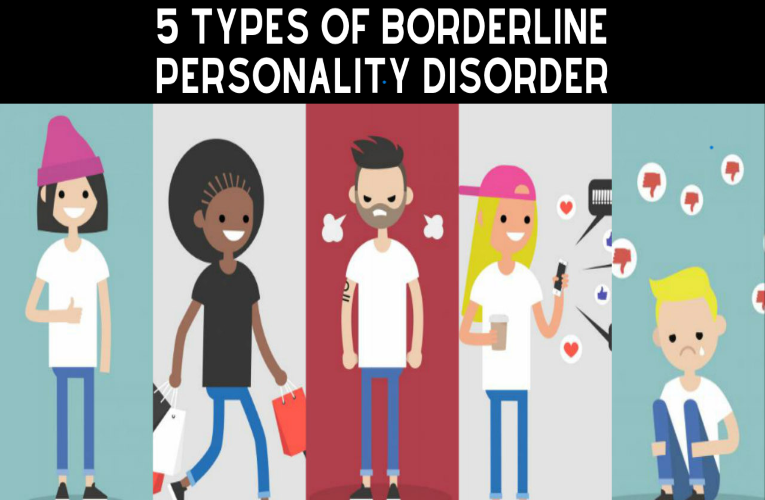5 Ways to Help Someone with Borderline Personality Disorder Avoid Self-Harm

People with borderline personality disorder (BPD) are at high risk of self-harm. As many as 66% of people with BPD will self-harm at some point in their life, and up to one-third do so frequently enough to meet the criteria for a recurrent self-harm behavior diagnosis. Self-harm is also a red flag that an individual might be at risk of suicide. Self-harming behaviors include any action(s) that results in physical harm to yourself, such as cutting or burning your skin, ingesting potentially harmful substances, or intentionally putting yourself in danger without regard for your safety.
Finding the Right Auto Accident Lawyer in Los Angeles
These actions may have been prompted by intense emotions such as anger or frustration—or even by something seemingly unrelated like boredom or stress. Self-harming can be an extremely harmful coping mechanism for those who struggle with BPD. In addition to the potential long-term physical effects, it can lead to further isolation and social rejection, which creates a cyclical state of being unable to cope in healthy ways and further increases the likelihood that you’ll resort back to self-harming again in the future.
Try to understand why your loved one self-harms.
The first step in helping your loved one with BPD avoid self-harm is understanding why they do it in the first place. The reasons for self-harm vary widely from person to person, and understanding your loved one’s motivations is essential to helping them find healthier coping strategies. One common theory is that people who self-harm are doing so as a cry for help. If your loved one’s self-harm was precipitated by feelings of isolation or frustration, this might be a good explanation. Another common theory is that some people who self-harm are attempting to numb the negative emotions they’re feeling by either distracting themselves or (in cases of physical pain) engaging in the same kind of distracting physical sensation that others might get from taking drugs or drinking alcohol.
Help your loved one find healthier ways to cope with intense emotions.
If your loved one’s self-harm was precipitated by intense emotions that they couldn’t otherwise express or let go of, you likely want to help them find healthier ways to cope with these feelings. This may include finding a safe place where they can experience and explore their emotions without feeling overwhelmed and feeling like they need to escape them by harming themselves. If your loved one has been diagnosed with BPD, they may benefit from DBT, a type of psychotherapy designed specifically for those with BPD. DBT is centered around helping people with BPD identify, understand, and appropriately respond to their emotions in healthy ways. It also helps them develop healthier coping mechanisms for dealing with intense emotions so they don’t feel like they need to escape from them via self-harm.
Help your loved one find a support group where they can find acceptance and feel less alone.
If your loved one’s self-harm was brought on by feelings of isolation, they may benefit from connecting with others who have similar struggles. A borderline personality disorder is often misunderstood by others, resulting in feelings of stigma and shame that may contribute to feelings of isolation. Finding a support group where your loved one can talk to others who understand their struggles and feel accepted as they are can help reduce these feelings of shame, isolation, and self-harm. If your loved one has been diagnosed with BPD, they may be a part of the BPD Foundation’s support group. The group is completely free to join and provides a safe space for individuals with BPD and their loved ones to receive peer-to-peer support, share their experiences, and learn from each other.
Help your loved ones stay connected to the outside world by helping them maintain routines and reminding them of upcoming events they’re looking forward to.
If your loved one’s self-harm was precipitated by feelings of being alone or isolated, helping them stay connected to the outside world can help reduce this feeling. This may include helping your loved one maintain regular routines like meal times, sleep times, and exercise, as well as reminding them of any upcoming events they’re looking forward to. Even though your loved one might feel isolated, chances are they have other friends, family members, and loved ones around them. Helping your loved ones stay connected to these people and reminding them of upcoming events can remind them that they’re not alone and provide a helpful distraction from negative emotions that might otherwise trigger self-harm.
Help your loved one learn effective communication skills so they can express their needs without relying on self-harming behaviors.
People with BPD often experience a heightened sensitivity to rejection. This can lead to a lot of problematic thoughts and feelings, including a fear of being rejected. If your loved one has been diagnosed with BPD and they’re self-harming, they may be doing this as a way to preemptively reject themselves in an attempt to avoid what they fear others would do to them. Rejecting yourself can take many forms, including self-harm. If your loved one is doing this, there are a few things you can do to help them find ways to express their needs without relying on this unhealthy coping mechanism.
Conclusion
People with borderline personality disorder are at high risk of self-harm. This can be an extremely harmful coping mechanism for those who struggle with BPD, but there are ways to help them avoid self-harm. You can start by trying to understand why your loved one self-harms and finding healthier ways for them to cope with intense emotions. You can also help your loved one find a support group where they can find acceptance and feel less alone. Finally, you can help your loved one stay connected to the outside world by finding ways for them to express their needs without relying on self-harming behaviors.










